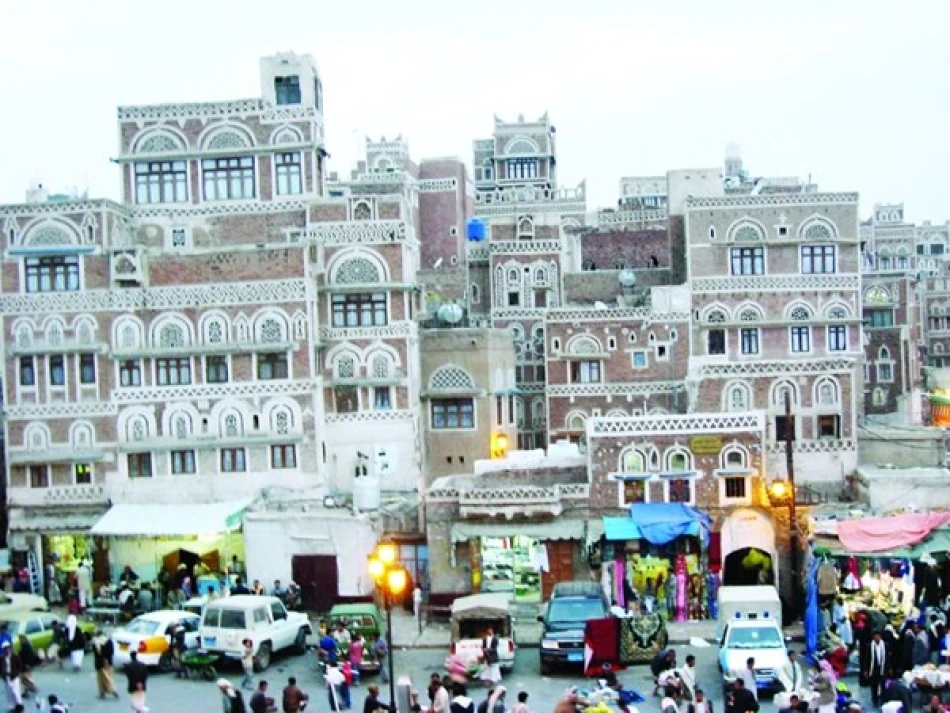
Restoring Yemen's State: Ending the Houthi Coup and Achieving Lasting Peace
Yemen's Humanitarian Crisis Deepens as Houthi Attacks Create Environmental Catastrophe in Red Sea
Yemen's government has declared that ending the Houthi insurgency remains the only viable path to peace, as new UN data reveals 70% of Yemeni families lack adequate food supplies. The crisis has been compounded by Houthi attacks on commercial shipping in the Red Sea, creating what officials warn could become an uncontainable environmental disaster that threatens marine ecosystems and the livelihoods of coastal communities.
Diplomatic Push for International Action
Speaking before the UN Security Council, Yemen's Permanent Representative Ambassador Abdullah Al-Saadi renewed his government's commitment to a just peace based on agreed frameworks. However, he emphasized that genuine peace requires addressing the root causes of the crisis and holding obstructive parties accountable.
The Yemeni government called for more decisive international action against the Houthis, demanding an end to their crimes and violations while cutting off their funding sources. This appeal comes as the conflict enters its tenth year, with no clear resolution in sight despite multiple peace initiatives.
Humanitarian Catastrophe Reaches Critical Point
UN Under-Secretary-General for Humanitarian Affairs Tom Fletcher delivered stark statistics to the Security Council, revealing that Yemen has become the world's third-most food-insecure nation. Nearly half the population suffers from severe food deprivation, a crisis deepened by rising food prices, ongoing warfare, and economic collapse.
The humanitarian situation represents one of the world's worst ongoing crises, with international aid organizations struggling to meet basic needs amid security challenges and funding shortfalls. The economic devastation has created a vicious cycle where families cannot afford basic necessities, while infrastructure destruction limits agricultural production and trade.
Environmental Disaster Unfolds in Red Sea
The Rubymar Incident: A Ticking Time Bomb
Yemen's Environment Minister Tawfiq Al-Sharjabi warned of severe environmental consequences from Houthi attacks on commercial vessels in the Red Sea. The targeting of the cargo ship Rubymar, loaded with tens of thousands of tons of ammonium nitrate fertilizer, has created what experts fear could become an ecological catastrophe.
The vessel now lies on the seabed off Yemen's coast, its cargo contained in sealed containers that may not hold indefinitely. Al-Sharjabi explained that prolonged exposure to seawater could cause gradual leakage of the dangerous chemicals into the marine environment.
Cascading Environmental and Economic Impacts
The minister outlined the dual threat posed by potential ammonium nitrate leakage: immediate environmental contamination and long-term economic devastation. Dissolving chemicals would create acute pollution affecting marine life and coral reefs, while directly threatening the livelihoods of fishing communities along Yemen's coast.
This environmental threat compounds Yemen's existing food security crisis, as fishing represents a crucial protein source and economic lifeline for coastal populations. The potential destruction of marine ecosystems could eliminate this vital resource, pushing more communities toward famine.
Strategic Implications for Regional Stability
The Houthi campaign against commercial shipping has transformed a localized conflict into a global concern, affecting one of the world's most critical trade routes. The Red Sea carries approximately 12% of global trade, making these attacks a significant threat to international commerce and energy supplies.
The environmental consequences add another dimension to the crisis, potentially creating long-lasting damage that would persist even after any eventual peace settlement. The combination of humanitarian, environmental, and economic factors suggests that Yemen's recovery will require unprecedented international coordination and resources.
As the conflict continues with no clear end in sight, the mounting crises demonstrate how prolonged warfare creates cascading effects that extend far beyond immediate military objectives, threatening regional stability and global trade networks while deepening human suffering.
Most Viewed News

 Layla Al Mansoori
Layla Al Mansoori






